INTERNATIONAL POLITICS
Tinubu’s many Baptisms
Published
9 months agoon
By
Editor
By Dr Chidi Amuta
Very few presidents get the unhappy privilege of previewing the full gamut of worries that will torment their presidency all within their first 100 days. President Bola Tinubu is lucky to belong in this rare collection. In less than a hundred days in office, he has faced challenges in the key areas that make or mar any national leadership. He has hit a domestic economic storm over his sudden halt of a troublesome subsidy regime on gasoline and foreign exchange. That has unleashed still unfolding economic and social consequences. He has faced severe political indigestion over his tardy handling of a ministerial list that almost got him into a constitutional trouble. As if that was not enough political palaver, he has had to cast away the bumbling chairman and secretary of his wobbly ruling party and replaced the chairman with a dollar loving ex- governor. Still to his benefit, a group of ambitious military officers in nearby Niger Republic decided to boot out the fledgling democratic government of President Bazoum. That has thrown in a foreign relations angle to Tinubu’s cocktail just as he assumed the ceremonial leadership of the sub regional ECOWAS bloc.
If the world at home and abroad were to be still and at peace for his first hundred days, Mr. Tinubu would probably have concluded that being president of Nigeria is a cakewalk. But somehow, the man is lucky to have a fair sample of what lies ahead for him. These are the previews of a presidency that will be defined by unusual happenings. Each of these challenges presages an interesting time that could redefine the life of Nigerians and the future of the nation. Hovering at the background is of course the unresolved matter of the legitimacy of the Tinubu government and the integrity of the controversial February 25th presidential election now before tribunals and courts.
On the domestic front, the subsidy related crises have just begun. The impact of the hike in gasoline pump prices is in its infancy. The immediate rise in transportation costs, food inflation and escalating business costs are still unfolding. Labour unions are merely rehearsing long drawn protests and strikes that could linger for long stretches. The president has shown a perennial willingness to engage with representative of those hurt by his harsh policy options. That is a plus for the man.
The end of the subsidy regime was inevitable and a matter of national survival. A national economy that is spending over 100% of its revenue on debt servicing and with an external debt burden of over 100 billion dollars has nowhere to run to for relief. Subsidy on gasoline in particular is more like a gasoline tax whose incidence falls on hapless and helpless citizens. Foreign exchange arbitrage, disguised patronage and racketeering is also a form of subsidy to users of foreign exchange which had to end. Sundry leakages like crude oil theft, illegal mining and outright pilferage from the treasury have become imperatives if the economy must survive. For Mr. Tinubu therefore, these hard decisions were national existential imperatives.
It however remains debatable whether the President’s rather cavalier method of ending the subsidy regime is the best. Experts have argued that the subsidies could have been removed on a stage by stage gradual basis to cushion its impacts. But it turns out now that beyond the bravura of the Eagle Square off-script announcement of the withdrawal of the petroleum subsidy, little or no serious thought had gone into the consequences of the policy measure. That the announcement of the policy was made far ahead of the constitution of a cabinet and other critical bodies of the new government may indicate a government that is prone to hasty ad hoc policy measures than a rigorous approach to policy issues. Predictably, an equally hasty and lazy cash transfer measure was announced and touted as a comprehensive palliative. It turned out to be lazy, haphazard and almost foolish.
The arrangement was presumably designed to pay N8, 000 a month to each of 15 million households for a six month period. When subjected to widespread public scrutiny, it turned out that the measure was not properly thought through. No one was sure of the credibility of the statistical base for the cash transfer or the authenticity of the list of projected beneficiaries. It turned out that the list that the Buhari administration had used to implement its own N5, 000 per family cash transfer was adjudged unreliable and dodgy by the National Economic Council (NEC). The pressure of public opinion and outright lobbying from cash hungry state governors forced the presidency to drop the move and return to the drawing board.
Predictably, the President has now been forced by pressure of strikes and protests from labour unions to announce a new set of palliatives and relief measures. These range from food supply boosts, small business low interest credit incentives to provision of buses for mass transportation. In the absence of a fully formed government and a mechanism for ensuring serious implementation of the relief measures, we are still left with a scant instrument for policy implementation. What is required is not just the good intentions of a compassionate president but the combined will of a committed government as a collectivity. More importantly, government’s communication strategy needs to be revised to inform the public that the end of a subsidy regime implies a revision of our economic model. It requires time for the economic benefits of the end of subsidy to translate into beneficial outcomes. Most importantly, the federal government must re-direct the development goals of the nation from landscape decoration and white elephant projects to massive investment in social sectors of health, education and strategic infrastructure. In his handling of the unfolding ripple effects of the end of subsidy, President Tinubu failed an elementary item in the code of presidential conduct. Presidents preside over good and bad news. But they are not supposed to break bad news. They appoint fa;; guys to carry bad news and clean the mess. The president only appears on television with the good news when the clean up is done or almost done. Tinubu should have waited to appoint ministers to manage the subsidy removal trouble and only appear to address the nation when the palliatives and relief measures are ready.
The political challenges and methods that will define the Tinubu presidency are already in full display. The president has obviously displayed unnecessary sloppiness in coming up with a list of ministers. A president that prides himself in having been long in politics and angling to lead could not readily come up with a list of 40 odd ministerial nominees over nearly a three month? The Nigerian public expected a faster delivery of the list to the Senate in contrast to the embarrassing delay in Mr. Buhari’s first term. Although the list has at last been delivered, the list reads more like a telephone directory of jobless strange bedfellows. The hopes that were raised in terms of the caliber of persons and the skill set required by the nation’s current state of disrepair.
One school of thought expected Mr. Tinubu to replicate his Lagos state emphasis on technocrats and seasoned reputable experts as against politicians. Instead, what the Senate is currently considering is a mixed bag of odd fellows. There are less than half a dozen worthwhile technocrats of any description. There are less than a dozen women, fewer than eight real youth. The rest is a mixture of former governors and opportunistic political jobbers.
Clearly, the segment of the Nigerian populace that harbored a messianic expectation of the Tinubu cabinet may be in for a rude shock. The majority of ex- governors on the ministerial list have only one major qualification: they are APC governors who helped Tinubu corner the presidential election. Other than that, they are the same governors who could not secure their states from casual bandits, who could not pay workers salaries and benefits for months on end. They are the same bunch of incompetent governors who literally sank their states in debt and shut down schools at the slightest opportunity. The only conspicuous outsider from the APC band is former Rivers State governor, Nyesom Wike, who is being rewarded by Mr. Tinubu for betraying his party, the PDP, and pumping up Tinubu’s vote tally by all means in his state.
The internal politics of the ruling party, the APC, has now equally received Tinubu’s attention. The president has quickly moved to rejig the party machinery in line with his perceived cult of devotees. No one knows exactly what belief holds these devotees together other than crass loyalty to the president. The Adamu -led executive may have been good enough to deliver Mr. Buhari’s succession plan or lack of it. Mr. Tinubu has now jettisoned that arrangement by forcing out Mr. Adamu and his secretary Mr. Omisore. Astute political observers have noted that Tinubu is reorganizing the party for his second term as president. The party has appointed or ‘elected’ former Kano state governor, Mr. Ganduje, as the new Chairman. The diehard Tinubu supporter has a less than attractive national appeal. He is more popular nationally for a viral video in which he was shown serially pocketing wads of dollar notes from an anonymous generous giver. The matter is still under investigation in Kano state but he now has a higher responsibility as the supremo of the nation’s ruling party.
While the ways of politicians remain forever mysterious and extraordinary, political parties remain vital national institutions for the survival of democracy. To that extent, the credibility of those who preside over and run the affairs of political parties ought to be subject to no less a rigorous integrity test and scrutiny than the very state officials periodically nominated by the parties for public offices. It may be convenient at this early stage to fill key party positions with favorites of the president. Subsequently, opposition to these questionable party officials could graduate into pockets of opposition to the political foothold of the president himself. That is usually the seed of instability in our political parties. In his political body language so far, Tinubu has been quite predictable. He is part of the old politics of assembling bad men and women to assuage a public that thrives on impressions. His cabinet selection is a mix of a few good men and a multitude of ordinary persons. They will do business as usual and disappear into the national pool of incompetent anonymity.
By far the most telling and far reaching early challenge for the Tinubu presidency is in the sphere of foreign affairs. The coup in nearby Niger Republic has come at a ‘good’ moment for Mr. Tinubu. Many Nigerian presidents serve out their tenure without experiencing a consequential foreign policy challenge. Tinubu must be grateful to the Niger coup makers for the opportunity they have given him to start out as a significant foreign policy president. Barely a fortnight after he assumed the ceremonial chairmanship of ECOWAS, the coup happened. In quick succession, the coup makers detained the democratically elected President Bazoum, suspended the constitution, sacked the government and garrisoned off the capital, Niamey. ECOWAS has issued a one week ultimatum for the coupists to back down and back off. But the soldiers seem to have dug in. They have been openly supported by fellow juntas in Mali and Burkina Faso as well as tacitly by Russia’s Wagner Group of mercenaries which is conspicuosly present all over West Africa. More interestingly, Algeria, as an expression of its long standing historical anti-French sentiments has pledged support for the coupists. In open rebuff of Nigeria which is leading the sub regional pressure against the coup, the dictatorship in Niger has broken off ties with Nigeria and ordered ambassadors of Nigeria, Benin, France, the United States and EU to leave Niger. The stage seems set for a major confrontation or at least a war of diplomatic nerves.
For Nigeria, the challenge is one of diplomatic leadership in a crisis virtually next door. The implications for us are wider than many are prepared to admit. First, Niger is important to the world only because of its uranium deposits which the West is not prepared to let into the hands of rogue elements especially the Russians. For us, the location of Niger is strategically important. The ousted Niger government was a barrier against the southward spread of jihadist insurgency from the Sahel.
For President Tinubu, therefore, the management of the Niger crisis is multiply important. It is important for Nigeria’s stabilizing role in the West African region. It is important in terms of Nigeria’s capacity to partner with the West to frustrate Russia’s ambitions in the West African sub region. At a time when French influence in the region has waned, can Nigeria fill the gap as a force for regional stability? More importantly, the spread of military dictatorships in the countries bordering the Sahel poses a challenge for the sustainability of Nigeria’s democracy and those of its neighbors like Cameroun, Benin, Togo, Ghana, the Gambia and Cote d’Ivoire.
With a basket of unfolding domestic economic, social and political challenges, President Tinubu now has to define his authentic presidency. So far, he has not yet shown the steady hand of a prepared economic manager. Nor has he indicated a convincing capacity to choose wisely and assuredly in terms of a team to work with. But in the area of the foreign policy challenge that is unfolding in Niger, Tinubu has a clear and urgent choice to make as the ECOWAS ultimatum to the Niger junta ticks away. Will he become a ‘war president’ abroad even before he becomes a legitimate and capable leader at home? Yet, the nation and the world are anxiously waiting whether he can lead the forces of freedom in a world where the forces of freedom are now poised against a rampaging authoritarianism.
Dr. Amuta, a Nigerian journalist, intellectual and literary critic, was previously a senior lecturer in literature and communications at the universities of Ife and Port Harcourt
You may like
-


Top 8 Ways Halal Cosmetics Are Reshaping Fashion in 2024
-
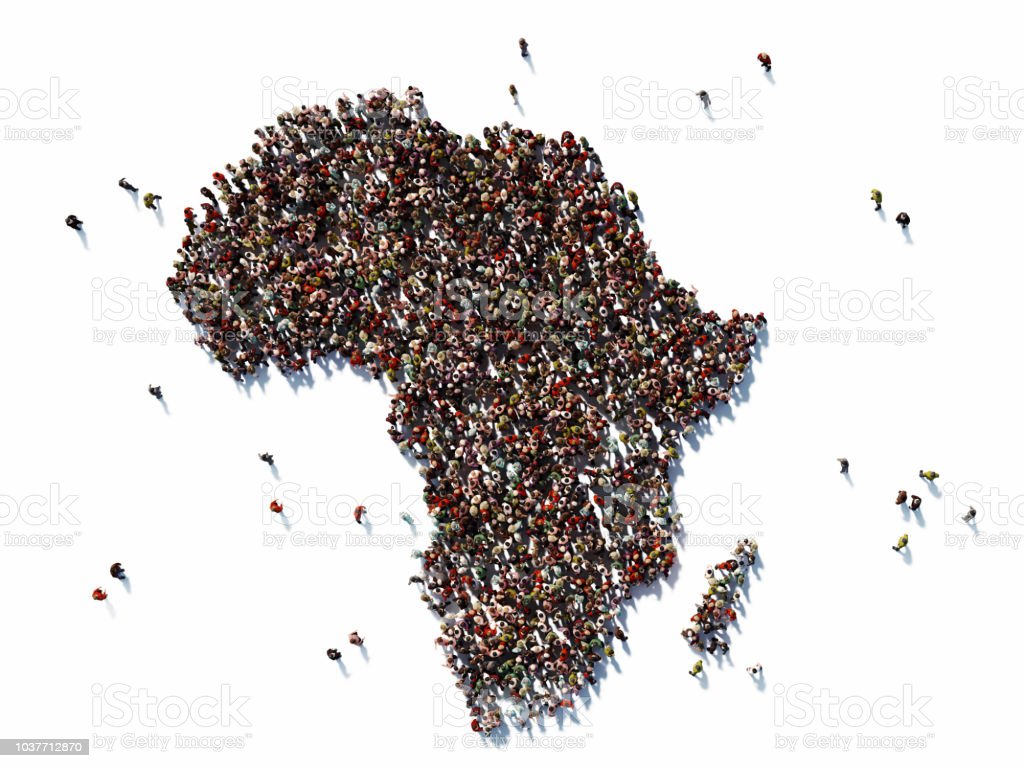

Debt Dependency in Africa: the Drivers
-
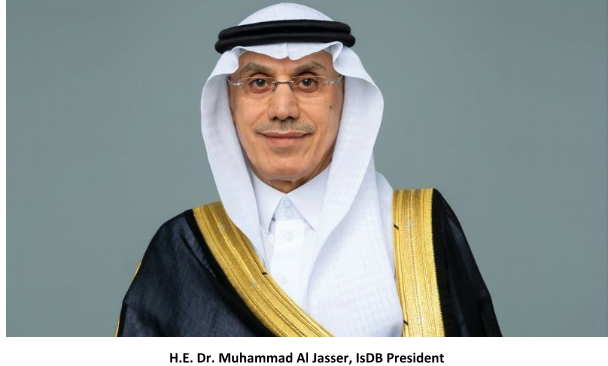

IsDB President Advocates for Cultivating Entrepreneurial Leaders
-
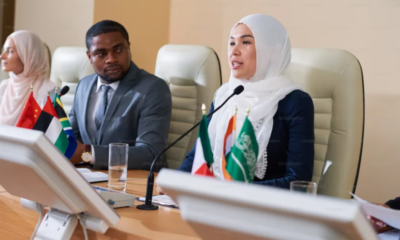

Sanctity of Hijab Being Undermined by the Liberal Media Globally
-
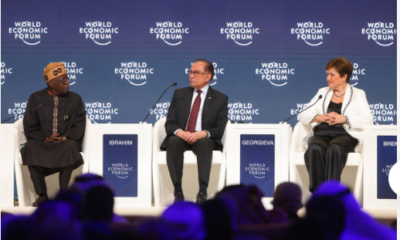

Davos Really Comes to the Desert as the WEF Arrives in Riyadh
-
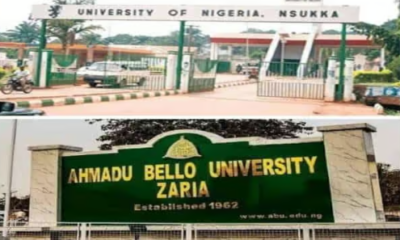

To Nigerian Universities, a Message from America’s Campuses
INTERNATIONAL POLITICS
Chad’s Election Outcome Already Seems Set: 4 Things Mahamat Déby Has Done to Stay in Power
Published
1 week agoon
May 6, 2024By
Editor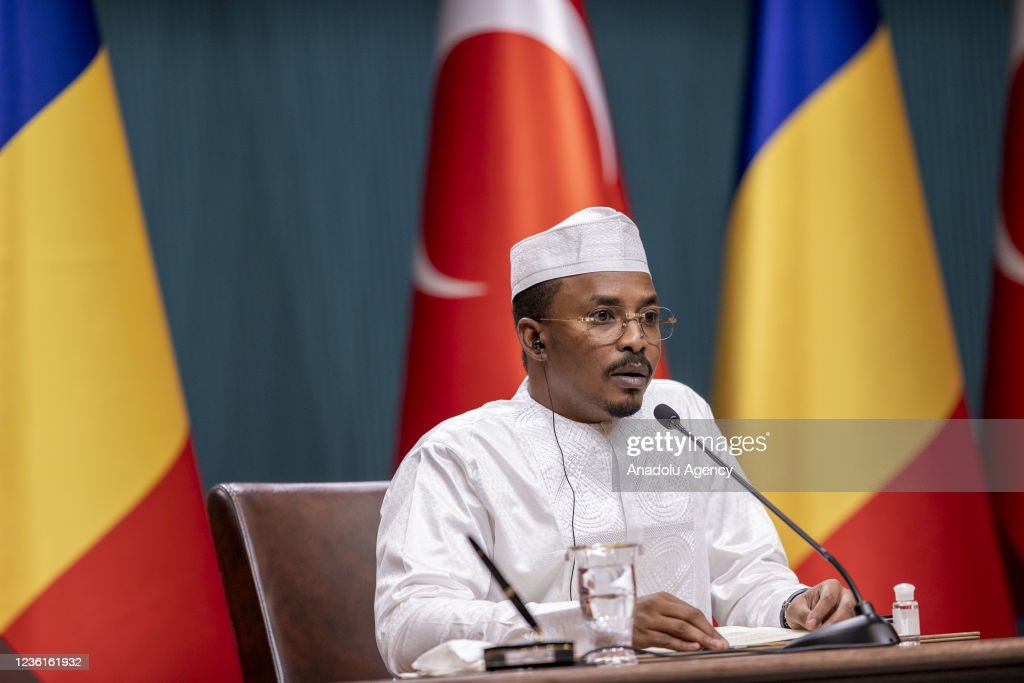
Chad’s elections kick off today. In this recent article, Helga Dickow argues that though it will officially mark the end of the transitional government, it may not mean a break with authoritarian rule. Mahamat Déby looks set to stay in power.
Chad’s presidential election campaigns officially kicked off on Sunday 14 April 2024 in the capital city, N’Djamena. Transitional president Mahamat Idriss Déby held a large meeting on the Place de la Nation directly in front of the presidential palace. In attendance were members of the government, the military and various political parties, identifiable, in the blistering heat, by their different coloured shirts.
Prime minister Succès Masra, meanwhile, led a large convoy of cars and motorbikes through the city and was accompanied by a crowd of mainly young followers. Déby and Masra, both in their early 40s, were cheered by their respective crowds. The election will take place on 6 May 2024 and end a three-year transition period led by Mahamat Déby after the sudden death of his father, Idriss Déby Itno, in April 2021.
I am a researcher on democratisation in sub-Saharan Africa, especially Chad. I have been closely following Chadian politics, including the transition phase, for many years. I would argue that Chad’s three-year transition programme had a single objective: the long-term retention of power by Mahamat Déby.
This objective has been pursued in four ways: violent oppression and intimidation; composition of the electoral institutions; approval of presidential candidates; and campaign strategies.
Violent oppression and intimidation
During the 30-year reign of the late Idriss Déby Itno, Chadians largely got used to a rather autocratic regime. Democratic liberties and the right to freedom of expression were repeatedly suppressed. Arrests of demonstrators were common. Some opposition leaders were killed. Ibni Oumar Mahamat Saleh, for example, was killed in 2008. Since Mahamat Idriss Déby came into office, two incidents have shown that violence against opposition voices has continued – even more ruthlessly.
On 20 October 2022, a day now known as Black Thursday in Chad, hundreds of mainly young Chadians, protesting against the extension of Mahamat Idriss Deby’s transitional government tenure, were shot and killed by government forces. The second incident was the assassination of Yaya Dillo, a cousin of Mahamat Déby and one of his fiercest opponents. Dillo, leader of the party Parti Socialiste sans Frontières (Party of Socialists without Borders) was shot in his party headquarters in N’Djamena on 28 February 2024. Official statements on his death blamed him for a deadly attack on the country’s security agency.
Composition of electoral institutions
The new constitution adopted in a controversial referendum in December 2023 demanded the creation of two electoral institutions before the electoral process. The institutions are L’Agence nationale de gestion des élections (National Election Management Agency) and the Constitutional Council. The election management agency is responsible for organising the election while the constitutional council vets candidates for the elections as well as the results.
Mahamat Déby appointed members of these two bodies on 30 January 2024 for seven year terms, which means they might serve him in two elections. All of them were loyal to his father in the past and have been members of the former ruling party Mouvement Patriotique du Salut for many years. Former minister of justice and spokesperson of the former ruling party, Jean-Bernard Padaré, was appointed president of the constitutional council. Padaré was accused of corruption in 2014. Retired president of the supreme court Ahmed Bartchiret, also a member of the former ruling party, chairs the election management agency.
It is my view that, in order to ensure his continuous grip on power, Mahamat Déby appointed faithful and long serving confidants of his father into these two important agencies for the management of the 6 May election.
Approval of presidential candidates
Between 6 March and 24 March, anyone interested in vying for the presidency was expected to submit nomination forms. Candidates had to pay 10,000,000 CFA (US$16,258) to the treasury. At the close of the exercise, 20 candidates expressed interest but only 10 were approved by the constitutional council appointed by Mahamat Déby, who is also a candidate. Disqualified candidates were given official reasons including an incorrect birth certificate or a missing document or photograph. As expected, the most prominent qualified candidates were Mahamat Déby and his prime minister, Masra. It will be the first time a president and the prime minister he appointed run against each other in a Chadian election.
Other approved candidates include former prime minister Albert Pahimi Padacké of the party RNDT Le Réveil. He served as prime minister to Mahamat Déby in 2021 and 2022. He previously served Mahamat’s father between 2016 and 2018. The only female candidate is Lydie Beassemda. She contested the presidency in 2021 and finished third.
The regional origin of the approved candidates is also an indication of how Mahamat Déby’s transition is simply working to retain him in the presidency. Out of the 10 approved candidates, only Mahamat Déby and Yacine Abderamane Sakine of the minority party Parti Réformiste are from the northern region. The other eight candidates are from the southern part of the country.
As elections in the past have shown, Chadians prefer to vote for politicians from their own region. Based on this projection, Mahamat Déby seemed poised to win most of the votes from the northern region while votes of the southern region would be split between the other eight candidates. Some voters may abstain from the polls as the opposition coalition Groupe de concertation des acteurs politiques (Concertation Group of Political Actors) and civil society groups like the Wakit Tama call for a boycott. They are challenging the legitimacy of the polls.
Given this scenario, Déby could win the majority of the votes cast in the first round of voting. Should this not be the case, the constitution says there would be a second round of balloting between the first two candidates. The candidate with a simple majority wins the second round.
Campaign strategies
All candidates are confident of victory. Their campaign promises do not differ greatly. They promise better living conditions – primarily the supply of electricity and water, education, more jobs and future prospects for the youth – as well as good governance, reconciliation and cohabitation. Mahamat Déby is additionally playing the stability card, which he has used throughout the transition period to justify his takeover and continuous hold on to power.
Mahamat Déby’s candidature is backed by a broad coalition called Coalition pour un Tchad Uni (Coalition for a United Chad). It is made up of more than 200 political parties and more than 1,000 nongovernmental organisations. The coalition is led by the former ruling party Mouvement Patriotique du Salut.
Mahamat Déby agreed to be the coalition’s presidential candidate on 2 March 2024. The opposition is accusing the coalition of using state funds for their campaign. Masra, leader of the opposition party Les Transformateurs, was one of Mahamat Déby’s strongest opponents until his return to Chad in October 2023 and was later appointed as prime minister.
As a presidential candidate, he struggles to campaign as someone independent of the Mahamat Déby transitional government. In his campaign speeches, Masra often refers to the past while carefully avoiding the past few months of being prime minister, a time when the cost of living rose due to increases in fuel prices and N’Djamena experienced the worst water and electricity crises ever.
Former prime minister Padacké refers to precisely these points in his campaign and accuses Mahamat Déby and Masra of being incapable of managing the country. If elected, Padacké promises to run for only one term. He avoids mentioning the fact that he was part of the late Idriss Déby Itno’s government.
In the final analysis…
Mahamat Déby is very likely to win the elections. Chad will see another Déby government. Meanwhile, focus on the presidential elections distracts attention from the fact that neither parliamentary nor local elections are planned in the near future. It is likely that Mahamat Déby will follow his father’s example here too: legitimisation through presidential elections. Under the late Déby, the last parliamentary elections were held in 2011; local elections were only held once.
Helga Dickow is a Senior Researcher at the Arnold Bergstraesser Institut, Freiburg Germany, University of Freiburg
Courtesy: The Conversation
INTERNATIONAL POLITICS
Sudan’s Civil War is Rooted in its Historical Favouritism of Arab and Islamic identity
Published
2 weeks agoon
April 30, 2024By
Editor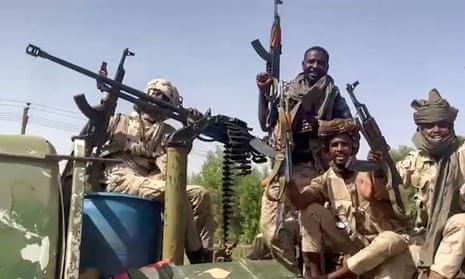
The current civil war in Sudan goes beyond a simple power struggle between two generals. It reflects a deep-rooted crisis within the country’s governing structure that’s been present since it gained independence from the British in 1956.
Since independence, the Sudanese have experienced 35 coups and attempted coups, more than any other African country. In the country’s southern region a 56-year rebellion eventually led to the creation of South Sudan in 2011. A Darfurian uprising in 2003 was sparked by accusations that the central government was discriminating against the region’s non-Arab population. It led to ethnic killings and continues to simmer.
Delving into the history of Sudan, which I have done for more than three decades, reveals that the country suffers from a long-standing identity crisis that has fuelled the numerous rebellions. The inability, or perhaps unwillingness, of successive governments to manage the country’s diversity and articulate a shared vision has resulted in unfair distribution of wealth and resources. Sudan has a population of 49 million. It comprises 19 major ethnic groups and about 597 ethnic sub-groups speaking hundreds of languages and dialects. Sudanese Arabs make up the largest single ethnic group at about 70% of the population.
Achieving peace in Sudan requires a focus on the concerns of marginalised populations in conflict zones and deprived regions. These include Darfur, South Kordofan and the Nuba Mountains. It also requires addressing the root causes of armed violence. Among them are issues of marginalisation, the relationship between religion and state, governance, resource sharing, land, social justice and equality at the national level.
The early years of independence
The Sudanese government that came to power in 1956 insisted on an Arab and Islamic identity. The state was based on the principles of Mahdism, an Islamic Sufi order established in the 1880s. It wasn’t representative of diverse communities and sought to subject them to the will of the Mahdist state. It demanded a degree of compliance that many were unwilling to provide. Resistance against Mahdism was widespread.
In 1989, a new government seized control of the state under the rule of the National Islamic Front. This was an alliance between army officers and the Muslim Brotherhood, a fringe outfit that grew into a powerful political organisation. This coup brought to power Omar al-Bashir, who was supported by Islamist leader Hassan al-Turabi. Their government also endeavoured to establish an Islamic state. The government set up an internal security apparatus, which arrested and tortured dissenters. In 1991, the regime introduced a new penal code to impose an Islamisation agenda, and created the “People’s Police”.
Two further developments would create the conditions for the war that continues to rage today. The first was the al-Bashir regime’s decision in 2003 to enlist Janjaweed militias to quell an insurgency in Darfur. Second, the Islamist regime used this new militia to keep the elite in the Sudanese army away from conflict zones in the periphery. In 2013, al-Bashir formally designated these tribal militias as the Rapid Support Forces through a presidential decree. This affiliated them with the national security and intelligence services.
In 2017, Sudan’s parliament ratified the Rapid Support Forces Law. This formally incorporated the militias into the government’s military apparatus under the direct command of the president. The minister of defence was tasked with overseeing the Sudanese Armed Forces. Mohamed Hamdan Dagalo, alias Hemedti, was appointed by al-Bashir to lead the Rapid Support Forces. This enabled his power and influence to grow. It was to inform the dramatic and tragic events in Sudan in the coming decade.
After protests in 2018 swept through Sudan’s major cities – driven by grievances around poverty, corruption and unemployment – the military intervened in April 2019. They removed al-Bashir from power and declared a state of emergency. Despite establishing a transitional military government, demonstrations persisted demanding civilian leadership.
With mediation from the African Union, an agreement on power-sharing was reached in August 2019. It resulted in a military-civilian transitional administration. Still, challenges persisted, including a failed coup attempt in September 2021. A month later, Sudan’s top general, Abdel Fattah al-Burhan, led another coup, derailing the country’s democratic transition.
The months leading up to the war in April 2023 were marked by civilian protests that were violently repressed, and tensions between army and Rapid Support Forces leaders.
Forging a militia-dominated state
The Rapid Support Forces emerged as a counterbalance to the armed forces. It strategically deployed thousands of battle-hardened fighters to the country’s biggest cities, volatile border regions and economic hubs like gold mines. Concurrently, Russia forged ties with the Rapid Support Forces through the Wagner Group to secure access to Sudanese gold. Three conditions coalesced to foster the emergence of a militia-dominated state, with the Rapid Support Forces at its helm.
- Civil strife in Darfur in 2003 presented an opportune moment. While the army focused on quelling rebellion in south Sudan, the suppression of the Darfurian uprising in the west was left to paramilitary forces.
-
Support from the Sudanese government enabled the self-styled militia to access financial resources and weaponry. It could then develop commercial ventures to attain and sustain autonomy from the state.
- Ideologically, Hemedti portrayed the Rapid Support Forces as a militia representing marginalised Arabs from Sudan’s rural and border regions.
The unravelling
In Sudan’s evolving democratic transition, Hemedti’s rise to the vice presidency of the Sovereignty Council in 2021 was crucial, overseeing the path to elections. Disbanding the Rapid Support Forces or sidelining Hemedti risked sparking unrest, given the outfit’s size and business interests. Militia dominance over the state can prompt belated responses from the military, potentially making conflict worse. Initially, Hemedti refrained from seizing power by force. He aligned his troops as allies of the army, which also had substantial economic ventures.
But the October 2021 military coup halted Sudan’s democratic progress. Amid repression and economic decline, the Rapid Support Forces expanded its influence through business ventures and engagements. The army’s attempt to integrate these forces backfired, leading to armed confrontations and the Rapid Support Forces’ seizure of critical areas.
What next
Sudan requires a collaborative effort from the international community to aid reconstruction. It needs to establish a transparent, civilian-led government that represents the Sudanese populace and hears their voices in decision-making processes. Urgent action is needed to reconstruct Sudan’s post-colonial state as one that includes and safeguards the rights of all.

By Steve Osuji
CRISIS DEEPENS: President Bola Tinubu has announced a no-confidence vote on himself, unknown to him. He inadvertently admitted that he is unable to do the job and that his administration is in crisis when he inaugurated two hurriedly cobbled up, new-fangled economic committees to run things and revive economy. The first one is a 31-member Presidential Economic Coordination Council (PECC), while the other is a 14-man Economic Management Team Emergency Task Force, code-named (EET).
If Nigerians noticed the move by Tinubu, they didn’t seem to give a damn. Many had long given up on the Tinubu presidency anyway and they have switched off its activities. They have come to the eerie realization that Tinubu is not the man to get Nigeria out of the morass of poverty and underdevelopment, so many have long moved on with their lives, leaving the man to continue with his extended blundering and shadow-boxing.
The teams are made up of the usual culprits: the jaded Dangote-Otedola-Elumelu circle; the Bismarck Rewane-Doyin Salami-Soludo celebrity-economists and the same raucous crowd of governors and ministers. The same motley crowd of people who brought Nigeria to her current tragic destination has been gathered again!
Apparently, Bola Tinubu forgot he had just last February, assembled the Dangote-Elumelu hawks as his Economic Advisory Council members. Scratch! That was just another presidential blunder out of so many. Now PECC and EET are Tinubu’s NEW DEAL. Call it “peck and eat” if you like but that’s the new buzz in Aso Rock. But for discerning minds, this is a clear sign that crisis has deepen in Tinubu’s administration.
SELF-INDICTMENT: But which serious president sets up a new economic management task force after 10 months in office? What about its cabinet? Has it been rid of the failed ministers and aides whose apparent failure warranted a side team like this? What has the new government been doing in office all this while? What about the election manifesto and the president’s economic vision Could it be that all these have been forgotten in 10 months to the point that outsiders are needed to give direction and “revive” the economy?
Now some ministers and state governors have been co-opted into this new TASK FORCE. They are mandated to meet twice a week in Abuja for the next six months. So what happens to the governors’ duties back home? What about the ministers’ core assignments? All of this seems quite weird right now. The simple message here is that the president has lost focus and direction. Vision, if any, has failed him. The presidency is weak and puny nobody is holding forth in case the president falters.
BLANK SCORECARD: Now almost one year in office, no scorecard, nothing to report. All the positive indictors the president met upon inauguration have all crashed to near zero. Even the deposits in the blame banks have been exhausted – there’s nobody to blame anymore!
LOW CAPACITY, LOW ENERGY: This column has warned right before election that Tinubu hasn’t the requisite mental and physical capacities to lead Nigeria. As can be seen by all, President Tinubu has not managed to tackle any of the fundamentals of the economy and the polity; the very basic expectations in governance are not being attended to. For instance, the corruption monster rages on afield, with Tinubu seemingly not interested in caging it. Official graft has therefore worsened under his watch. About N21 billion budgeted for his Chief of Staff as against N500m for the last occupant of that office has become the compass for graft in Tinubu’s Nigeria. Today, the police is on a manhunt for the investigative journalist exposing filthy Customs men while the rogues in grey uniform are overlooked. The president personally ballooned the cost of governance by forming a large, lumbering cabinet and showering them with exquisite SUVs, among other pecks.
Insecurity is at its worst with no fresh ideas to tackle it. The country is in semi-darkness as power generation and distribution is at near-zero levels. Importation goes on at a massive scale, productive capacity has dwindled further and living standard of Nigerians is at the lowest ebb now. There’s hardly anything to commend the Tinubu administration so far.
WHO WILL RESCUE THE SITUATION: As Nigeria’s socioeconomic crises deepen, and the president’s handicaps can no longer be concealed, who will rescue the polity? All the stress signs are there; the fault lines are all too visible to be ignored anymore. Recently, we have seen civilians brazenly butchering officers and men of the Army and the army brutishly exacting reprisals almost uncontrolled. We see the escape from Nigeria, of the Binance executive who had been invited to Nigeria and then slammed into detention. That a foreigner could slither out of the hands of security personnel and slip out through Nigeria’s borders, suggests unspeakable ills about the country. The other day, so-called MINING GUARDS in their thousands, were suddenly ‘manufactured’ – uniforms, boots, arms and all. They are conjured into existence ostensibly to guard the mines. Which mines? Whose mines? How much do the mines contribute to the federation account? Are we using taxpayer’s money to fund an army to protect largely private and illicit mines? Why are we committing harakiri by throwing more armed men into our unmanned spaces? Even the Nigerian Navy has been unable to protect Nigeria’s oil wells! The Mining Guard is yet another symptom of an insipient loss of control by the President.
Finally, for the first time in a long while, an editor, Segun Olatunji, was abducted from his home in Lagos. For two weeks, no one knew his whereabouts and no arm of the military cum security agencies owned up to picking him in such bandits-style operation. It took the intervention of foreign media and human rights bodies for the Defence Intelligence Agency (DIA) to own up they abducted him, and eventually release him. Not one charge was brought against him.
Not even under the military junta were editors kidnapped by security agencies in this manner. The point is that the so-called democrat-president is losing patient with the media. There shall be many more abductions and media mugging in the coming days. When a government fails, it kicks the media’s ass for reporting the failure; that’s the historical pattern!
Things will go from bad to worse and government would respond in more undemocratic and authoritarian ways. Lastly, it’s unlikely that Dangote and Co can rescue the dying Tinubu presidency? These are fortune-hunters craving the next billion dollars to shore up their egos. To mitigate the looming crisis, Tinubu must quickly reshuffle his cabinet that is currently filled with dead woods and rogues. Many of them are too big for their shoes and they are not given to the rigors of work.
In fact, Tinubu must as a matter of urgency, fortify the presidency by changing his chief of staff to a Raji Fashola kind. As it is, the hub of the presidency is its weakest link.
Steve Osuji writes from Lagos. He can be reached via: steve.osuji@gmail.com
#voiceofreason
Feedback: steve.osuji@gmail.com

Turkey’s Bold Stand Against Israeli Aggression in Gaza: A Call for Global Solidarity

What is Microtakaful and How Does It Work?

Top 8 Ways Halal Cosmetics Are Reshaping Fashion in 2024
Topics
- AGRIBUSINESS & AGRICULTURE
- BUSINESS & ECONOMY
- DIGITAL ECONOMY & TECHNOLOGY
- EDITORIAL
- ENERGY
- EVENTS & ANNOUNCEMENTS
- HALAL ECONOMY
- HEALTH & EDUCATION
- IN CASE YOU MISSED IT
- INTERNATIONAL POLITICS
- ISLAMIC FINANCE & CAPITAL MARKETS
- KNOWLEDGE CENTRE, CULTURE & INTERVIEWS
- OBITUARY
- OPINION
- PROFILE
- PUBLICATIONS
- SPECIAL FEATURES/ECONOMIC FOOTPRINTS
- SPECIAL REPORTS
- SUSTAINABILITY & CLIMATE CHANGE
- THIS WEEK'S TOP STORIES
- TRENDING
- UNCATEGORIZED
- UNITED NATIONS SDGS
Trending
-

 TRENDING11 months ago
TRENDING11 months agoAFRIEF Congratulates New Zamfara State Governor
-

 PROFILE9 months ago
PROFILE9 months agoA Salutary Tribute to General Ibrahim Badamasi Babangida: Architect of Islamic Finance in Nigeria
-

 BUSINESS & ECONOMY3 years ago
BUSINESS & ECONOMY3 years agoClimate Policy In Indonesia: An Unending Progress For The Future Generation
-

 BUSINESS & ECONOMY3 years ago
BUSINESS & ECONOMY3 years agoThe Climate Crisis is Now ‘Code Red’: We Can’t Afford to Wait Any Longer
-

 BUSINESS & ECONOMY3 years ago
BUSINESS & ECONOMY3 years agoIPCC report: ‘Code red’ for human driven global heating
-

 HALAL ECONOMY10 months ago
HALAL ECONOMY10 months agoRevolutionizing Halal Education Through Technology
-

 SPECIAL REPORTS5 months ago
SPECIAL REPORTS5 months agoRemembering Maryam Ibrahim Babangida: A Legacy of Grace, Philanthropy, and Leadership
-

 BUSINESS & ECONOMY2 years ago
BUSINESS & ECONOMY2 years agoDistributed Infrastructure: A Solution to Africa’s Urbanization

